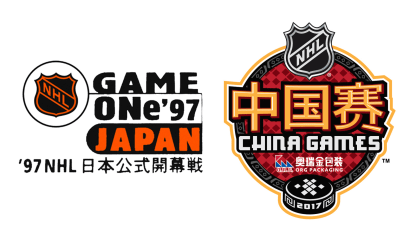Today in Tokyo, memories of the NHL in Japan are few and far between. But Shoichi Tomita, Team Japan goalie at the 1960 Winter Games and IIHF Vice President from 1994 to 2012, remembered.
"We didn't have a real hockey facility in Tokyo.
"The ice machine wasn't strong enough at Yoyogi National Gymnasium where 1997 and 1998 NHL games were held]. Figure skating doesn't need as strong ice."
[Watch: Youtube Video
LA Kings assistant coach Dave Lowry, who skated for the San Jose Sharks in October 1998 when they took on the Calgary Flames at Yoyogi, chuckled, "The rink used to be a pool."
So, in October 2000, the league chose Saitama Super Arena, which boasts a maximum capacity of 36,500, to host the Pittsburgh Penguins and Nashville Predators.
"That was a mistake," confessed Tomita. "The basement wasn't big enough for hockey. So, we raised the ground floor with support. But it wasn't easy to put the Zamboni out.
"Saitama Arena wasn't built for ice hockey, it was built for basketball. It wasn't a great hockey atmosphere."
In China, the Kings and Canucks shouldn't face such obstacles. Both the Mercedes-Benz Arena in Shanghai and Wukesong Arena in Beijing, where the exhibition games are taking place, are world-class, hockey-friendly facilities.
Perhaps more importantly, the NHL's efforts at growing the sport in Japan beyond these special games and Nagano were limited.
David Proper, current NHL EVP of Media & International Strategy, conceded, "We dropped in, played the games, and left."
Canucks President of Hockey Operations Trevor Linden, who suited up for the 1997 tilts against the Mighty Ducks, noted, "Just showing up and playing the world's fastest game … it's got to be more than that."
On this end, the league also seems to be have learned its lesson.
"Our ownership believes we need to be doing things more than just playing games [in China]," said Proper. "If we had to do it over in Japan, there would have been more of that around the game as opposed to just coming in and playing the games."
Along with their commitment to playing at least six times over the next eight years in China, the NHL has promised a wide range of grassroots activities in China, from youth clinics to watch parties.
"The mistake was to not go back," asserted Kings President Luc Robitaille, "I think what's very important here is we're coming now and the NHL needs to keep coming back.
"For us, the LA Kings, it's two years that we've been coming [to do clinics]. We're going to keep coming and bringing our guys and help teach the game of hockey. We need continuity."


















